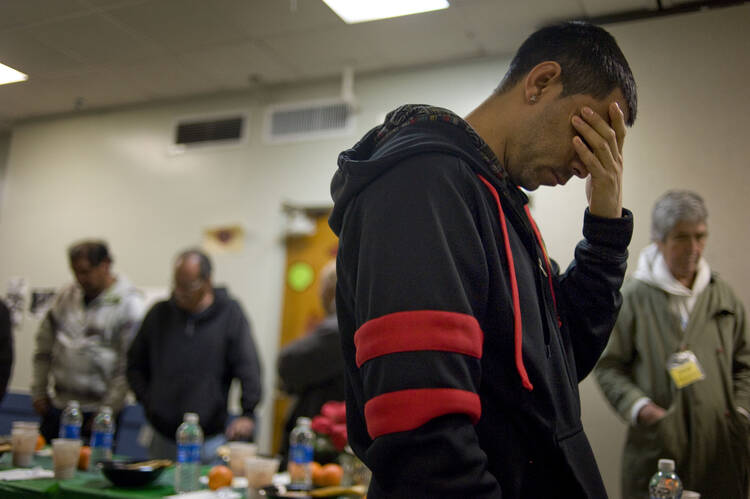For decades, Chicago State University on the city’s South Side has offered a chance for bright, talented students from financially struggling families to earn a college degree. Funding problems meant the university had to cut short its academic year last spring. Whether it can make it through the current school year appears doubtful.
In Bloomington, a sexual assault victim was told by the city’s main rape crisis program that she must return to the apartment where the assault occurred once she leaves the hospital. There are no longer funds to temporarily relocate rape victims to a safe location.
At Mid-Central Community Action, a large program for domestic abuse survivors, the homeless and disabled, Deb White, the director, has been forced to lay off about a third of her staff. “Many of the staff in social services have now become the people who need services,” she says. “Without an adequate state budget, we’ve created a situation where more people need the social safety net.”
Illinois has the dubious distinction of being perhaps the only state ever to have gone a full fiscal year without a state budget. Social service agencies with state contracts have continued to provide services as best they can while waiting to receive reimbursements the state owes. Unlike businesses, these not-for-profit organizations cannot simply refuse services to people who cannot pay. In many cases, they are mandated by the state to provide them.
The budget crisis is the result of a standoff between Gov. Bruce Rauner, a Republican, and the Democratic-controlled legislature. Rauner will not sign off on a budget unless legislators back his so-called Turnaround Agenda for the state. That includes renegotiating labor contracts, lowering taxes, cutting regulation and making Illinois a right-to-work state. A majority in the legislature say those goals should not be achieved on the backs of the most vulnerable. Neither side has the nerve to suggest higher taxes.
The Illinois budget battle raises broader questions about whether the state has a moral obligation to care for its citizens in need. But the crisis has given social service providers a chance to publicly defend what they do.
Stories like this one from Melissa Breeden, head of early childhood programs at the McLean County YWCA, abound. “We had a four-year-old boy come to us, struggling socially and emotionally. He was extremely violent. He couldn’t express himself; he had suffered trauma in his life.” Breeden says that after two years in an early learning program, the boy went from being “a lost, violent child to a successful child that loved school.” Then state subsidies for that program stopped coming. “It was a heart-wrenching decision, but we had to dismiss that boy.... That’s a child I think about all the time and have lost sleep over. I have no idea where he is now.”
Karen Zangerle heads an agency called PATH, which serves as a clearinghouse for services to people in crisis. “When a woman gets put off a train at the transportation center because she has fleas and is delusional, we’re the ones called,” Zangerle says.
Zangerle says private foundations and volunteers cannot handle the work that government-funded not-for-profits do. “There just aren’t enough of them.”
Perhaps the strongest argument for these agencies is that they actually save taxpayers money in the long run. Gail Kear heads Life Centers for Independent Living, which helps people with developmental disabilities to find jobs and live independently. Kear says it costs Life Centers about $20,000 a year to help people live on their own, compared with the $53,000 to $130,000 a year it would cost to house a person with mental disabilities in a nursing home or related facility.
Just as several agencies were threatening to close their doors this summer, the governor and legislators agreed to provide $600 million in stop-gap funding. By their own admission, it might take until 2018 to finalize the budget for fiscal 2017, which began on July 1.
Increasingly, Illinois citizens are calling on state officials to do the job for which they were elected. Breeden suggests legislators might personally explain to the people she sees why their services have been cut. “The state representatives aren’t there to have these conversations, so it falls to us to have to keep repeating over and over, ‘I’m sorry. We’ve done all we can.’”
And, as Breeden points out, there are only so many times a person can apologize.








